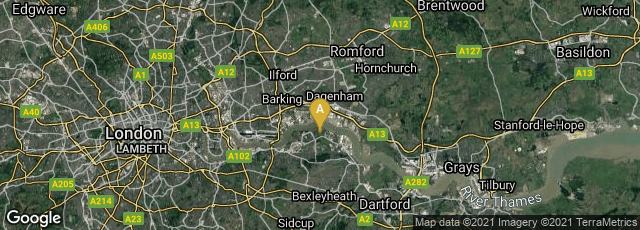

A: London, England, United Kingdom
In 1870 British inland telegraph systems were nationalized, after which they operated as part of the General Post Office (the Post Office). Companies operating international submarine cables were left independent. A major mistake made during nationalization was that the cost estimates failed to take into account the cost of purchasing railway company wayleaves, or even that it would be necessary to do so. The final bill far exceeded the original estimate.
The telegraph was never profitable under nationalization because prices were held low to make it affordable to as many people as possible, and the telegraph was extended to every post office issuing money orders, whether or not that office generated enough telegraph business to be profitable. Telegraph usage increased enormously under the Post Office, but it was never as cheap as the postal service, and growing competition from the telephone gradually reduced its market share.